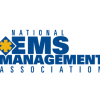Trauma patients aged 18 to 54 who were transported by helicopter to a trauma center were 39 percent less likely to die than those transported by ground ambulance, research has found. The study, which was published in the July–September issue of Prehospital Emergency Care, looked at mortality data on nearly 57,000 trauma patients cared for at 60 trauma centers nationwide.
Controlling for age, gender and injury severity, researchers from the Centers for Disease Control and Prevention’s National Center for Injury Prevention found that helicopter EMS (HEMS) didn’t improve survival rates for those aged 55 and up.
Patients may benefit from HEMS because air medical crews provide a higher level of medical expertise; the flight shortens the time to the hospital; and HEMS is used in areas of sparse ground EMS availability, according to the study. HEMS didn’t seem to offer added benefit for older patients, however, possibly because they have diminished physiologic reserve and more co-morbid conditions, or take medications that make successful resuscitation or treatment less likely. Older adults have higher in-hospital mortality rates from complications that are unrelated to the original injury, researchers noted.
The study, which excluded interfacility transports from the analysis, also found that men were more likely to die than women, and that risk of death went up with age.
Long Work Hours Bad for the Heart
People who regularly log 11-hour workdays have a 67 percent greater risk of having a heart attack or dying from a coronary event compared to those who work seven to eight hours a day, research has found. The study, which appeared in the April 5 issue of Annals of Internal Medicine, included data on more than 7,000 British civil servants, all participants in the Whitehall II study, who were examined for the first time between 1991 and 1993 and tracked through 2004.
What’s not clear is whether the long work hours contribute to heart disease risk, or if people who slog away on the job are more likely to have other unhealthy habits, such as poor diet, a lack of exercise or depression.
Older Americans More Likely to Have Adverse Medication Reactions
Americans aged 50 and up accounted for more than 1.1 million emergency department visits in 2008 due to adverse medication reactions, according to the Substance Abuse and Mental Health Services Administration. Nearly 62 percent of reactions were in people aged 65 and older; almost 61 percent were female, while 39 percent were male. Central nervous system drugs, including narcotic pain relievers and anxiety and insomnia medications, contributed to about one-fourth of the visits. Only 1 percent involved mixing prescription drugs with alcohol.
Not only do older adults take more medications, but physiological changes such as a decline in kidney and liver function also may increase their risk of experiencing an adverse reaction to drugs. “These increased risks represent a public health problem because the aging population is projected to increase in the next several decades,” the Feb. 24 report states.
Read the full report here: oas.samhsa.gov/2k11/DAWN013/AdverseReactionsOlderAdults_HTML.pdf.
Say a Prayer if Someone Steams You
If you’ve been insulted and are seething inside, say a prayer. Research finds that a quick appeal to a higher power helps angry people simmer down.
In a series of experiments, Ohio State University researchers intentionally provoked study participants by insulting them. Those who were asked to pray for the person who’d offended them, or even for a friend in need, calmed down faster.
It wasn’t just churchgoers who felt better after praying; even people who weren’t particularly religious were calmer. The study was published online March 18 in the Personality and Social Psychology Bulletin.
Debunking a Motorcycle Helmet Myth
For two decades, motorcycle riders opposed to mandatory helmet laws have justified their position by citing a flawed study that suggested in certain crashes, helmets might actually be dangerous. The weight of the helmet, they argued, could put greater torque on the neck, injuring the spine and causing paralysis.
A new study by researchers at Johns Hopkins University School of Medicine found that’s just not true. Helmeted riders were 22 percent less likely to suffer a cervical spine injury, according to their review of more than 40,000 collisions between 2002 and 2006 from the National Trauma Databank.
Helmeted riders were also 65 percent less likely to suffer a traumatic brain injury and 37 percent less likely to die. The study was published online Jan. 12 in the Journal of the American College of Surgeons.
Mandatory Screening Doesn’t Reduce Sudden Cardiac Death in Youths
The stories are heartbreaking: The young, seemingly healthy athlete suddenly collapses in sudden cardiac arrest (SCA) during a game. Such tragic events have led several countries, mostly in Europe, to institute mandatory electrocardiogram (ECG) screenings for student athletes.
But a study in Israel, where mandatory screening was instituted in 1997, found such screening hasn’t helped reduce the SCA death rate among student athletes. The study, published in the March 15 issue of the Journal of the American College of Cardiology, identified 24 cases of SCA from 1985 to 2009—11 before the legislation passed and 13 events occurring after the legislation. The average yearly incidence remained steady at 2.6 SCAs per 100,000 athlete-years in the decade before and after mandatory screening was instituted.
Current guidelines from the European Society of Cardiology call for mandatory ECG screening, while the American College of Cardiology and the American Heart Association call for a physical examination and medical history, but not ECGs.


